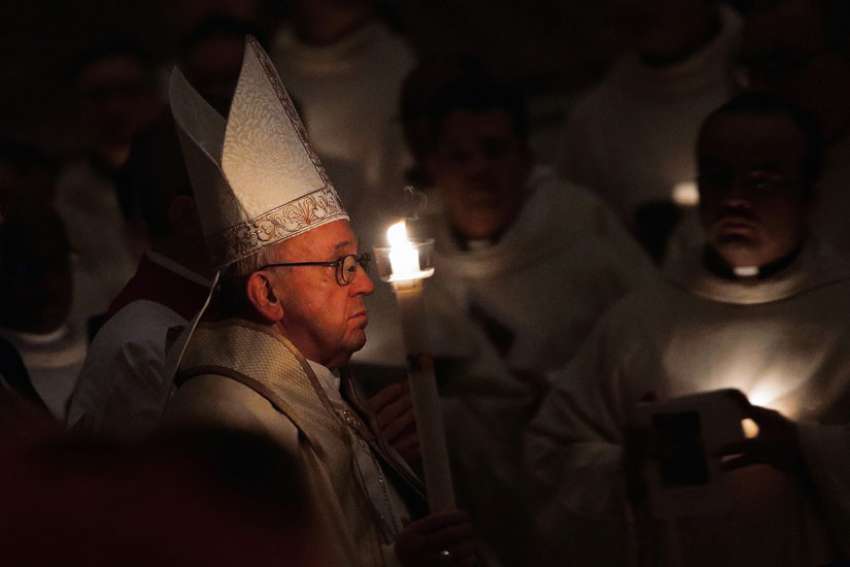In 2005, in the context of endless political spin, comedian Stephen Colbert coined the word “truthiness” — the notion that a speaker’s personal commitment to a statement is more important than facts, logic, evidence or the witness of history in determining whether or not something is in fact true.
As the Trump administration took office in Washington, counsellor to the President Kellyanne Conway added to our understanding of truth with the concept of “alternative facts.” She used this term to characterize made-up and provably false numbers presented by White House Press Secretary Sean Spicer, who was attempting to persuade Washington reporters that the crowd which witnessed Donald Trump’s inauguration as President was larger than President Barack Obama’s inauguration in 2009.
This is the world into which Pope Francis must launch his message for the 51st World Day of Social Communications. After the Second Vatican Council issued its Decree on the Means of Social Communication in 1963, the Vatican declared the Sunday before Pentecost (May 28 this year) World Day of Social Communication. Since 1966, popes have issued their message for the day on the Feast of St. Francis de Sales, Jan. 24.
Pope Francis this year concentrates on the Christian purpose of communicating anything to anyone. He encourages us “to engage in constructive forms of communication that reject prejudice towards others and foster a culture of encounter…. We have to break the vicious circle of anxiety and stem the spiral of fear.”
But that gets us right back to truth, said Dominican Fr. Michel Coté. Because trust is built on truth. Without truth, community breaks down in a stew of mistrust and doubt.
“Everybody has an alternative fact. If it’s all opinion it’s not related to what we would call truth,” Coté said.
Truth is particularly precious to the 800-year-old Order of Preachers (Dominicans), whose motto is “Veritas.”
“We’re questers, we’re searchers, we’re also beggars of Veritas,” said Coté.
Polish Dominican Sister Teresa Bosowska wouldn’t limit this description to Dominicans.
“In every human there’s a hunger for truth and goodness, which is especially our fundamental desire for God, who is the true and the good,” said the Calgary high school teacher. “St. Dominic believed that Jesus Christ is the truth that sets us free.”
Freedom is indeed central to Pope Francis’ conception of what Christian communication is all about, said Salt and Light Media Foundation CEO Fr. Thomas Rosica.
“This year’s message is very timely and speaks to the feelings of millions of people around the world who are caught up in ‘vicious cycles of anxiety’ and ‘spirals of fear,’ ” said Rosica in an email.
Freeing ourselves from anxiety and fear requires a relationship with the truth, said Jesuit spiritual director and literary critic Fr. Monty Williams.
“I personally think it is impossible to approach the truth without entering the never-ending process of conversion which moves us from our securities and ideologies and our power positions and complacencies to a transformative engagement with the constructions of reality that are presented to us,” Williams wrote in an email. “Truth is first of all a relationship.”
For Coté, it’s important to distinguish between relationships based on truth and relationships based on power.
“If you’re the pharaoh of Egypt or the emperor of Babylon or you’re the president of the United States and your opinion becomes the equivalent of or synonymous with the truth, then we might have a problem with truth,” he said. “Because then it’s mixed up with power and the purpose of power is to control.”
A firm sense of the truth changes the way we read our morning newspaper.
“Rather than viewing each new tragedy and mess with anxiety and despair, we view these moments as opportunities to proclaim the Good News of Jesus,” said Rosica. “The Pope challenges us to reject prejudices of all kinds and to foster a culture of encounter. We must view the world around us with realism and trust and foster confidence and trust in people.”


